Introduction
The United Kingdom, a land steeped in history, tradition, and a dash of charming eccentricity, never fails to surprise. Beyond Big Ben and double-decker buses lies a tapestry of fascinating facts and figures. Let’s uncover some truly mind-blowing tidbits about the UK that might just leave you utterly astonished!
15 Mind-Blowing Facts about UK
- The UK is home to the shortest scheduled flight in the world.
- Chickens outnumber humans in the UK.
- The Queen doesn’t need a passport.
- Windsor Castle is the oldest and largest occupied castle in the world.
- French was the official language of England for over 300 years.
- There’s an official “Swan Keeper” position in the UK.
- Tea was initially a super expensive treat for the British upper class.
- The UK has more tornadoes per square mile than any other country.
- India consumes more of the UK’s tea than Britain itself.
- A law once banned dying within the Houses of Parliament.
- The British Library holds a copy of every book published in the UK.
- A London pub claims to be the smallest in England.
- There’s a town in Wales with an impossibly long name.
- Big Ben isn’t actually the clock, but the bell within.
- The UK invented the world’s first postage stamp.
1. The UK is home to the shortest scheduled flight in the world.
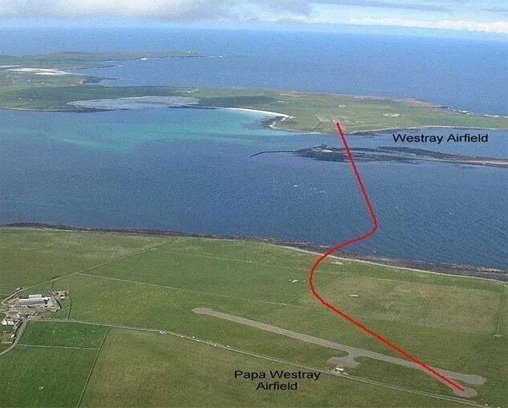
you can take a flight in the UK that’s shorter than the time it takes to brew a decent cup of tea! Nestled in Scotland’s remote Orkney Islands, the flight between Westray and Papa Westray is the world’s shortest scheduled passenger service. The regular journey usually lasts around two minutes. But wait, if the wind is just right, it can be done in an unbelievable 53 seconds! This super-quick flight, operated by Loganair, is more than just a gimmick. It’s a lifeline to these island communities, offering a unique aerial glimpse into their traditional way of life and jaw-dropping landscapes.
2. Chickens outnumber humans in the UK.
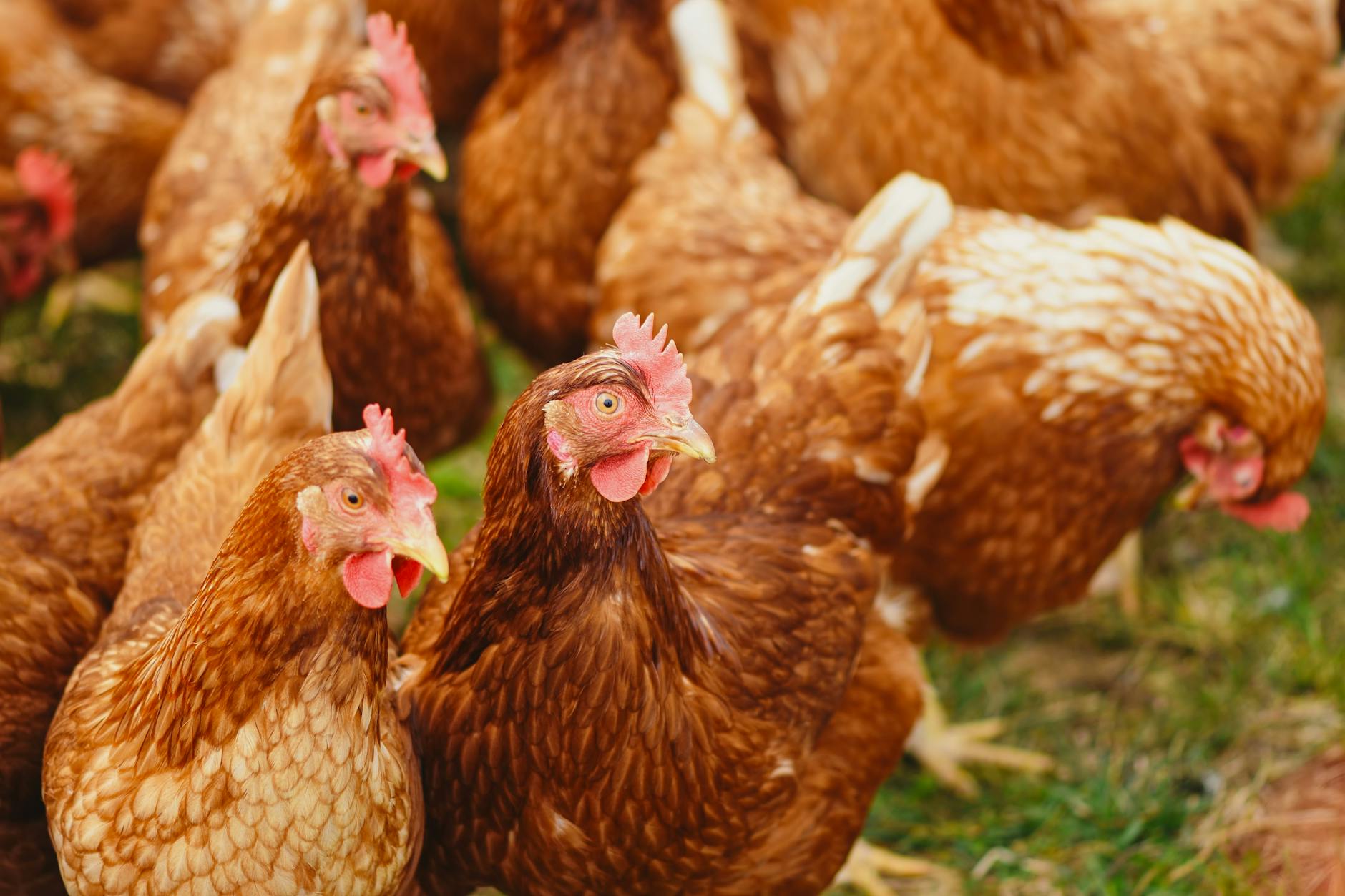
Fancy a fun fact to cluck about? Turns out, the UK’s love for chickens is no joke! There are way more feathered friends here than people. We’re talking about 1.2 billion chickens (give or take a few). That’s compared to the human population, which is a mere 67 million. This amusing statistic reflects the country’s strong agricultural history and fondness for a good roast chicken dinner. If you’re an egg enthusiast or a fan of all things poultry, consider the UK your paradise!
3. The Queen doesn’t need a passport.
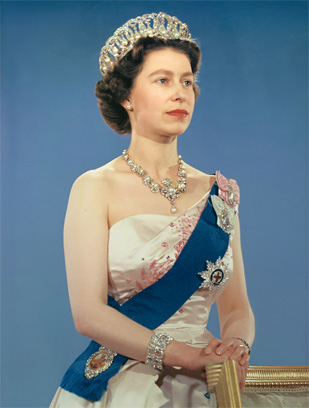
While most of us can’t imagine traveling abroad without our trusty passports, that’s simply not a concern for the Queen. Why? Well, British passports are issued in the Queen’s name, so it would be a bit silly for her to issue one to herself, wouldn’t it? It all sounds a bit like a scene from a comedy sketch, but this unique royal perk comes down to how these official documents work under the authority of the Crown. No worries though, when Queen Elizabeth II travels, she has other top-notch papers to verify her identity and ensure smooth sailing.
The King doesn’t need a passport either. Similar to his late mother, Queen Elizabeth II, King Charles III travels without a passport. As British passports are issued in the reigning monarch’s name, they don’t require one for their own travels.
Read More: Top 15 USA Facts That Will Blow Your Mind | Top 15 Facts
4. Windsor Castle is the oldest and largest occupied castle in the world.
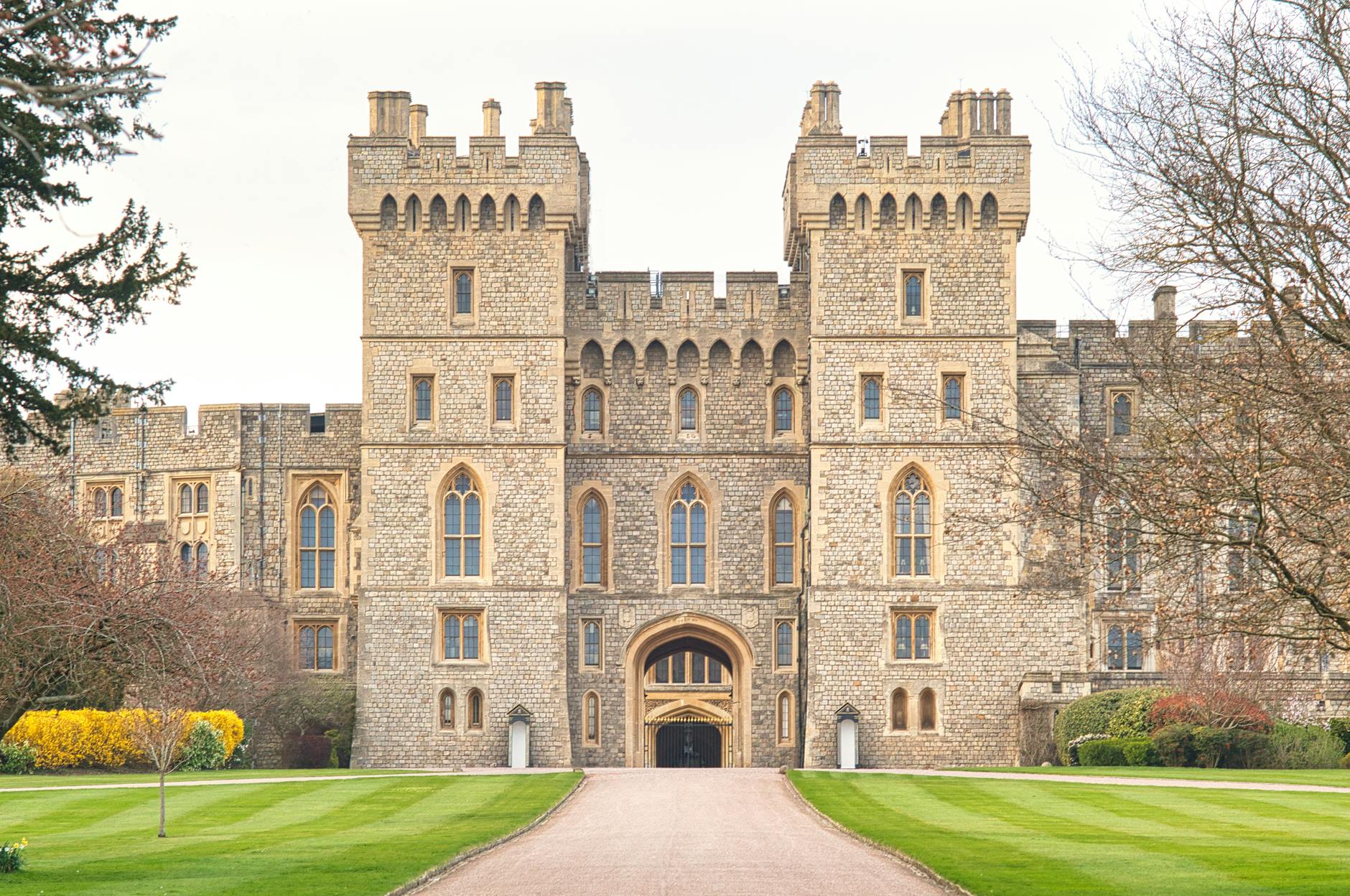
If walls could talk, Windsor Castle would have the most epic stories to tell! This magnificent fortress holds the record as the oldest and largest castle in the world that’s still in active use as a royal residence. For over 900 years, it has stood witness to countless kings and queens, history-defining moments, and all the drama that comes with the British monarchy. Windsor Castle isn’t just a museum piece, though. The Queen uses it as a working residence, and it hosts everything from grand state banquets to everyday affairs of the Crown. Plus, with its jaw-dropping architecture, lavish State Apartments, and the serene St. George’s Chapel, it’s a tourist magnet of epic proportions.
5. French was the official language of England for over 300 years.
Imagine if instead of queuing up for fish and chips, you asked for “poisson et frites” – that could have been the reality for a good chunk of English history! After the Normans invaded England in 1066, French replaced English as the official language of the courts, the aristocracy, and even legal matters! This lasted for over three centuries, reflecting the heavy influence of Norman power on English society at the time. Thankfully, English didn’t disappear but evolved side-by-side, eventually regaining its dominance. However, if you look closely, you can still find traces of French in many English words, a sneaky remnant of that linguistic power shift.
6. There’s an official “Swan Keeper” position in the UK.
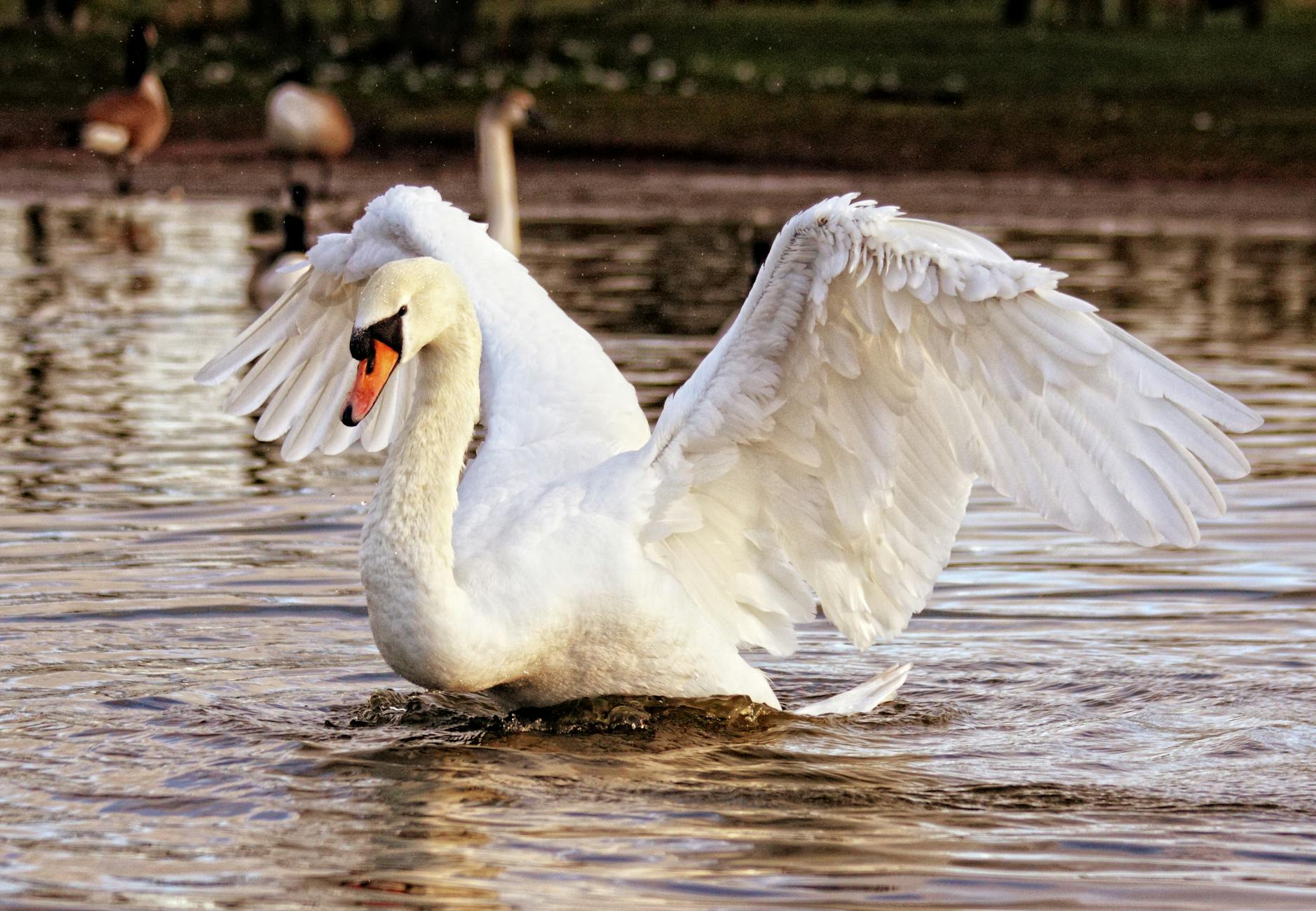
This one might sound like something out of a fairytale, but I swear it’s true! The UK has official positions dedicated to swans – we’re talking about a Swan Marker and a Swan Keeper. These roles have roots in royal tradition, dating back to when swans were a prized delicacy at banquets. The Swan Marker is in charge of counting swans on the River Thames during an annual ‘Swan Upping’ ceremony and checking their health. The Swan Keeper has a more educational role, working to raise awareness about swan conservation. It just goes to show that the UK takes its love of these graceful birds very seriously!
Read More: Uncover Earth’s Most Isolated Places and Their Mysteries
7. Tea was initially a super expensive treat for the British upper class.
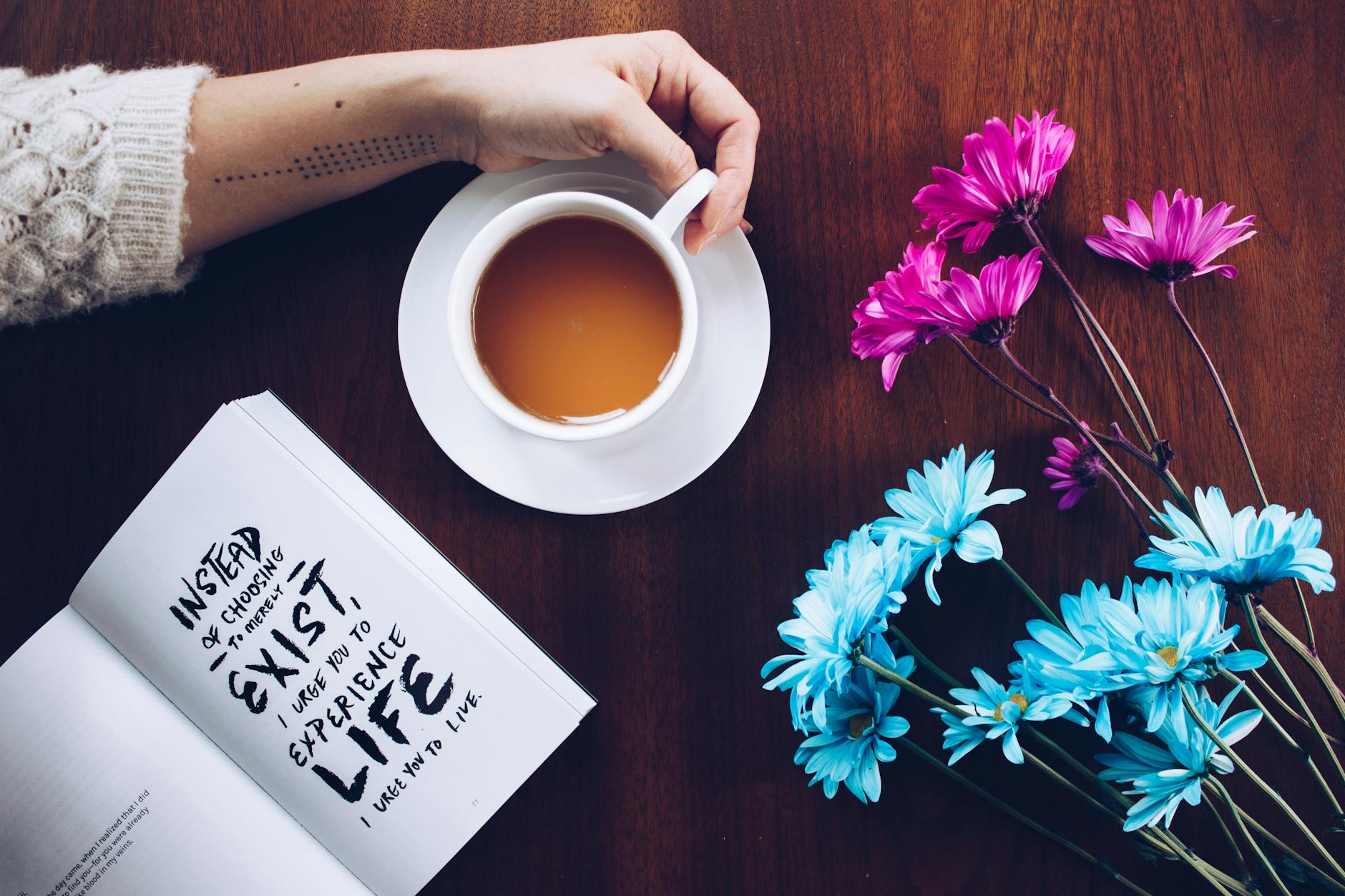
Forget your daily cuppa! When tea first landed on British shores, it was an exotic luxury reserved only for the wealthiest of the wealthy. Think of it like the designer handbag of its time – a status symbol rather than an everyday drink. But as trade routes opened up and supplies increased, tea gradually became more accessible. Today, it’s difficult to imagine the UK without the quintessential tradition of afternoon tea and a comforting brew.
8. The UK has more tornadoes per square mile than any other country.
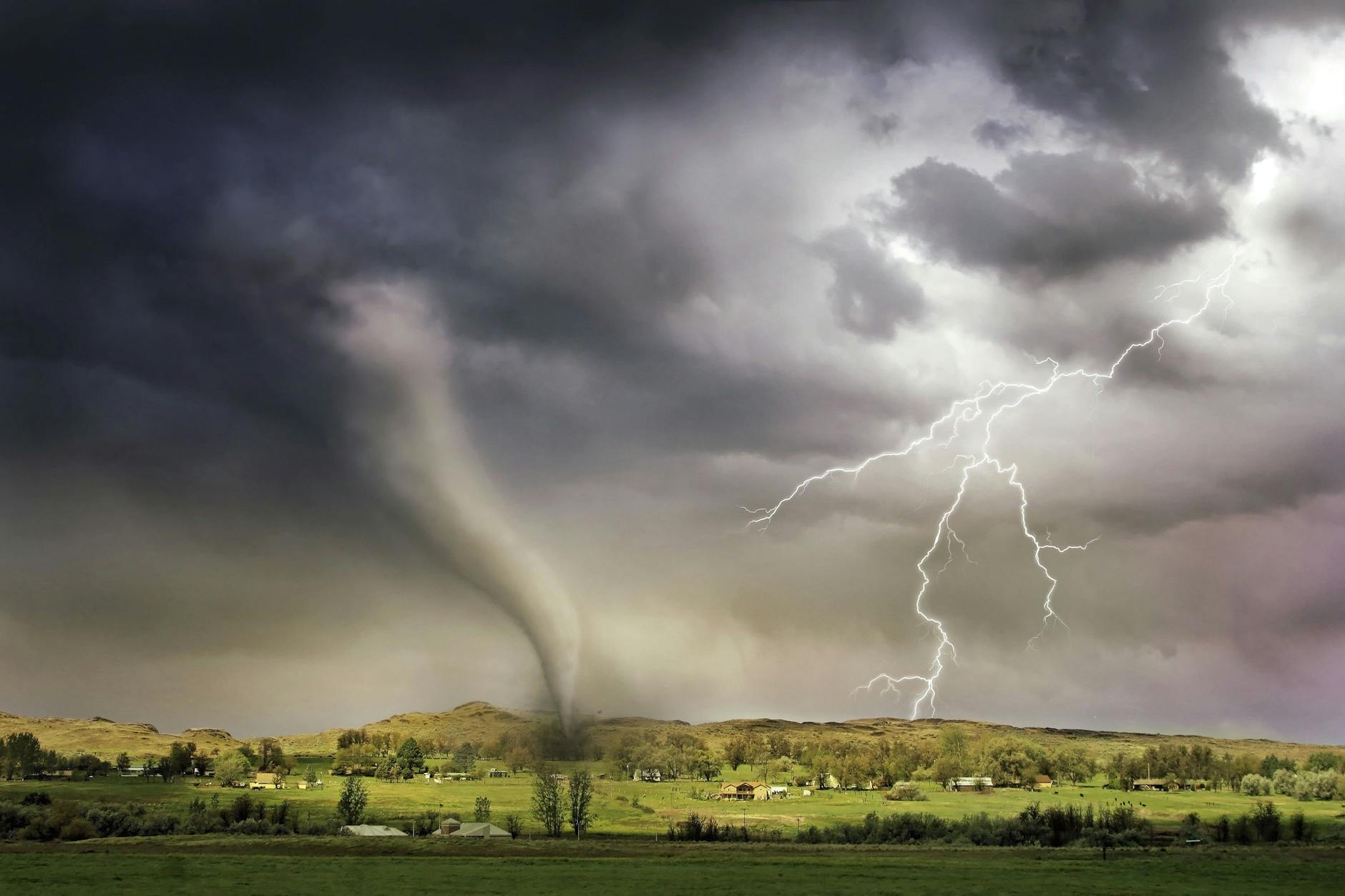
You might picture the USA as tornado central, but the UK holds a surprising record – it experiences the most tornadoes per square mile of land! While British tornadoes are typically smaller and less destructive than their American counterparts, they still occur with surprising frequency. It’s a reminder that even a country famous for its drizzle can pack a meteorological punch now and then.
9. India consumes more of the UK’s tea than Britain itself.
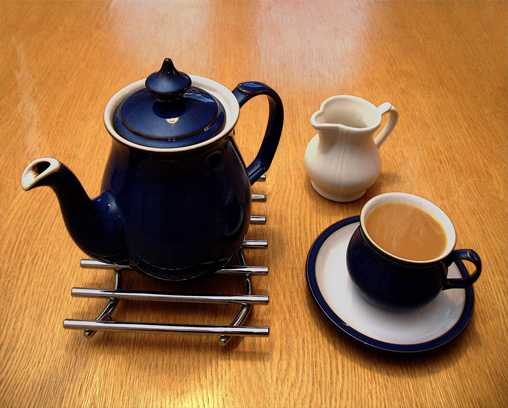
Image Source: wikipedia
This fact always makes me chuckle. India, the land that grows much of the world’s tea, is also the biggest importer of British tea! Talk about a global love affair with this classic beverage. It highlights the strong historical ties between the two countries and India’s deep-rooted tea culture. So when you’re sipping your next cup of English Breakfast, remember that chances are high someone in India is enjoying a similar brew!
Read More: 15 Cities That Dazzle After Dark: A World Tour of Nighttime Wonders
10. A law once banned dying within the Houses of Parliament.
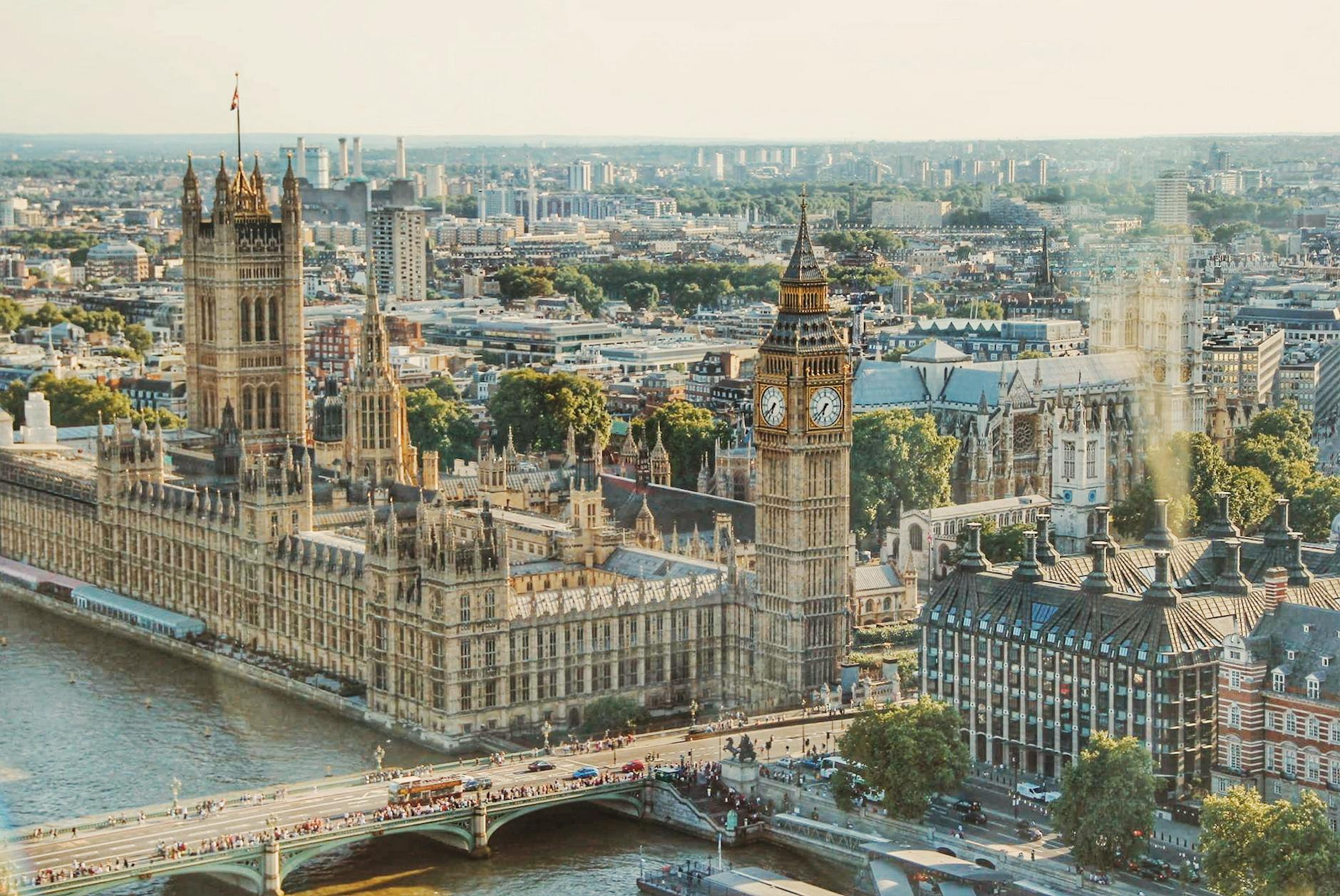
Here’s a truly bizarre one: there was an old law in the UK that made it illegal to die within the Houses of Parliament. Why? Well, anyone who shuffled off their mortal coil within those hallowed halls was technically entitled to a state funeral – a hefty expense that the government wanted to avoid! Thankfully, common sense prevailed, and this peculiar law is no longer on the books. But hey, at least it makes for a great conversation starter!
11. The British Library holds a copy of every book published in the UK.
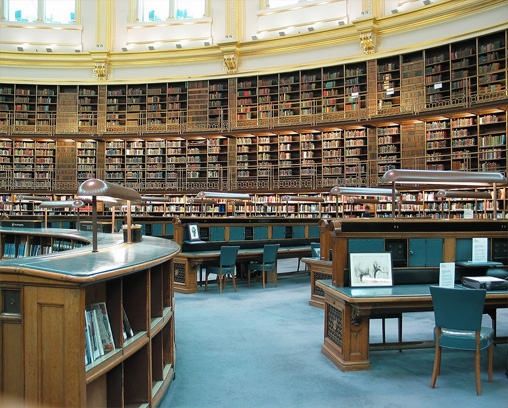
Bookworms rejoice! The British Library is a treasure trove of knowledge and literature, legally entitled to receive a copy of every single book published in the United Kingdom. Imagine the sheer scale of it – thousands of new books arrive daily, from popular novels to obscure research papers. It’s a testament to the UK’s commitment to preserving the written word and ensuring that future generations can delve into the nation’s vast literary history.
12. A London pub claims to be the smallest in England.
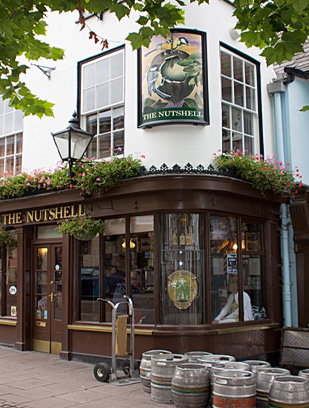
Image Source: wikipedia By Garry Lakin
Craving a cozy (and I mean really cozy) pint? Head to Bury St. Edmunds, where The Nutshell Pub makes a strong case for being England’s smallest drinking establishment. This quirky spot is full of character and just as cramped as you’d imagine. It seems the locals love it, and visitors can’t resist popping in for a quick tipple and the bragging rights of visiting such a unique little pub.
Read More: 15 Astonishing Natural Wonders You’ve Never Heard Of
13. There’s a town in Wales with an impossibly long name.
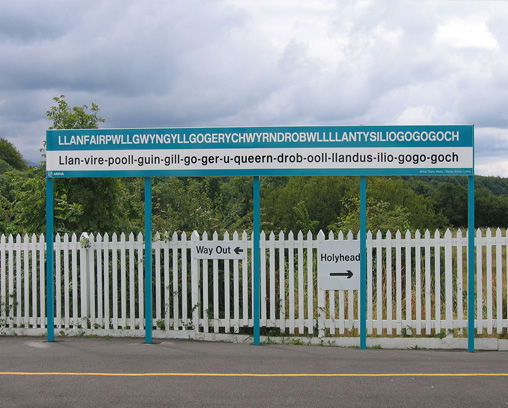
Image Source: wikipedia By Rob Koster
Get ready for a tongue twister! The Welsh town of Llanfairpwllgwyngyllgogerychwyrndrobwllllantysiliogogogoch boasts a name that’s more like a string of someone smashing their keyboard than an actual place. But it’s real, and its lengthy name (58 characters!) was concocted back in the 1860s for a bit of publicity. Locals tend to shorten it for convenience, but that doesn’t stop tourists from trying to pronounce it and capture that epic selfie with the town’s signpost.
14. Big Ben isn’t actually the clock, but the bell within.
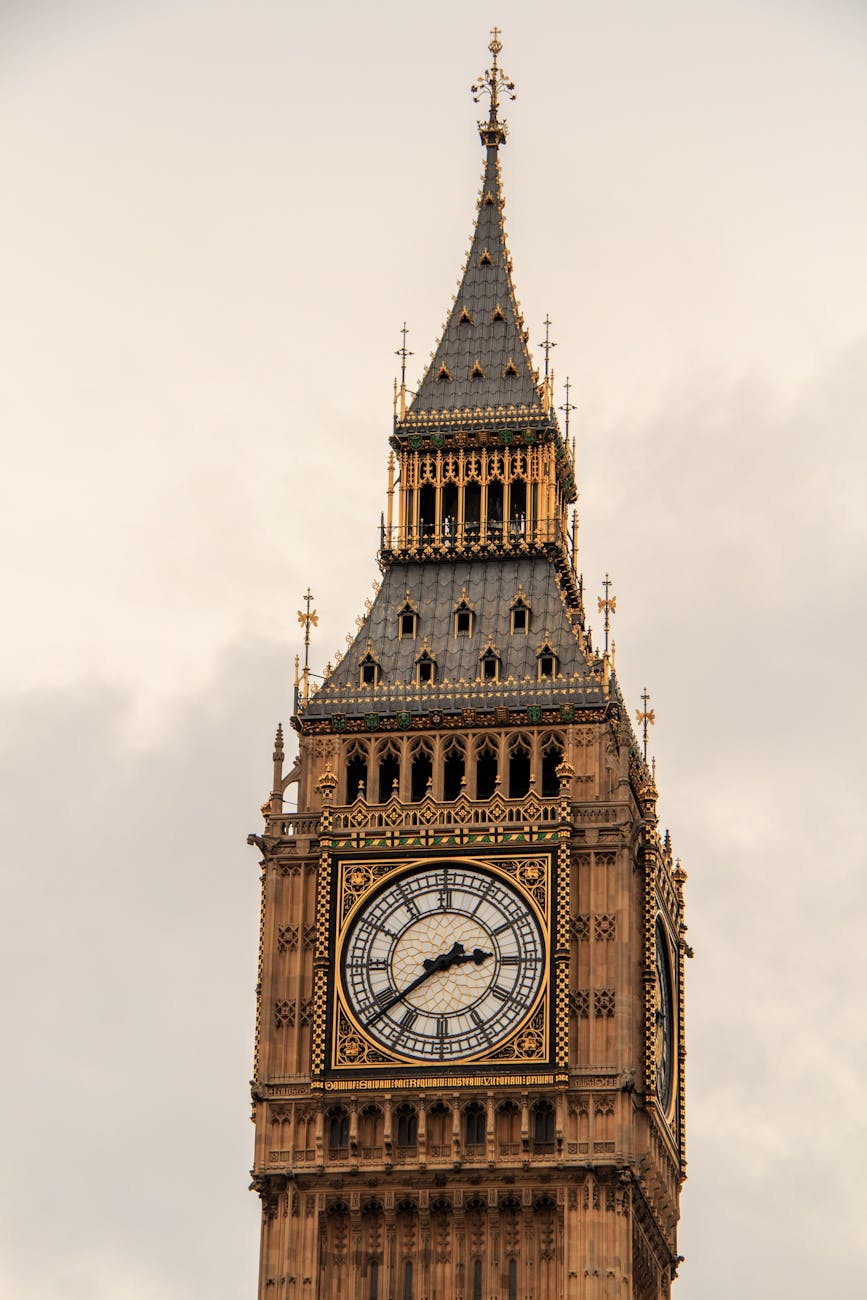
Mind blown, right? Most people think “Big Ben” refers to the entire clock tower at the Palace of Westminster. But technically, Big Ben is the nickname of the massive bell that chimes within the tower. The clock tower itself was renamed the Elizabeth Tower in 2012 to honor Queen Elizabeth II’s Diamond Jubilee. It’s a subtle distinction, but hey, now you can impress your friends at your next pub trivia night!
15. The UK invented the world’s first postage stamp.
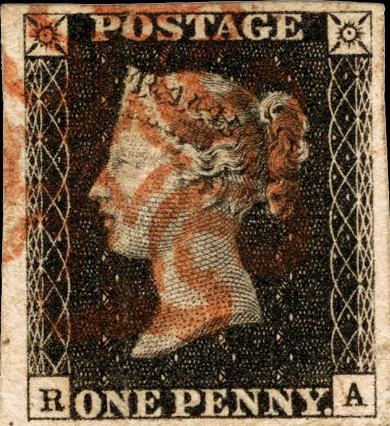
Letter writers and stamp collectors, this one’s for you! The UK takes credit for revolutionizing snail mail with the creation of the world’s first adhesive postage stamp in 1840 – the Penny Black. This simple yet ingenious invention replaced a clunky system where postage was paid by the recipient and often varied based on distance. The Penny Black standardized postage, making mail more affordable and accessible, forever changing the way we communicate.
Conclusion:
From quirky laws and record-breaking flights to feathered residents and linguistic twists, the UK is a neverending source of surprises. These mind-blowing facts offer a glimpse into the unique history, traditions, and unexpected quirks that make this island nation utterly fascinating. Whether you’re a curious traveler, a history buff, or simply love a good dose of the extraordinary, the UK will undoubtedly continue to astonish and delight.
15 FAQs ( Frequently Asked Questions):
-
Are there other interesting facts about the UK that didn’t make the list?
Absolutely! The UK is a treasure trove of bizarre and fascinating tidbits. Here are a few more:
1)The UK consumes a staggering amount of baked beans.
2)There are more time zones within the UK and its overseas territories than in any other country.
3)The Queen owns all the dolphins in UK waters (an ancient law still in place!). -
Where can I find reliable sources to learn more about the UK?
There’s a wealth of resources available:
Visit Britain: The official tourism website cultural insights and travel information.
The British Library: Their online resources (https://www.bl.uk/) provide access to historical documents and archives.
Historic Royal Palaces: (https://www.hrp.org.uk/) Explores the UK’s rich royal heritage. -
Can I visit the places mentioned in these facts?
Definitely! Many of these locations are popular tourist destinations.
Orkney Islands: Book a flight and explore Westray and Papa Westray.
Windsor Castle: Open for tours, showcasing its grandeur.
The Houses of Parliament: Guided tours are available when Parliament is not in session.
The Nutshell Pub: Stop by for a pint and its unique ambiance.
Llanfairpwllgwyngyllgogerychwyrndrobwllllantysiliogogogoch: Visit and try pronouncing the name! -
Are there any good books that explore unusual aspects of British history and culture?
Yes! Here are some recommendations:
“Notes from a Small Island” by Bill Bryson: A humorous and insightful look at British life by an American outsider.
“Watching the English” by Kate Fox: Delves into the quirks and social rules of the English.
“Mother Tongue” by Bill Bryson: An entertaining exploration of the history of the English language. -
Is the UK a good destination for travelers seeking unique experiences?
Absolutely! The UK offers a blend of traditional attractions and unexpected gems. Seek out smaller villages, delve into local pubs, explore regional festivals, and you’re bound to uncover experiences that make your UK trip truly memorable.
-
What are some unusual laws that still exist in the UK?
The UK has its fair share of quirky, outdated laws that still linger on the books. Here are a few amusing examples:
1)It’s technically illegal to handle salmon in suspicious circumstances.
2)In Scotland, if someone knocks on your door and needs to use the toilet, you must let them in.
3)It’s illegal to be drunk in a pub (yes, really). -
Are there hidden gems in London that most tourists miss?
Definitely! Venture beyond the major attractions and you’ll discover a whole other side of London:
1)Explore charming neighborhoods like Hampstead and Primrose Hill.
2)Stroll along the canals of Little Venice.
3)Discover hidden gardens, like the Postman’s Park or the Kyoto Garden in Holland Park.
4)Visit the Sir John Soane’s Museum, a treasure trove of oddities and artifacts. -
What are some iconic British foods beyond fish and chips?
True, fish and chips hold a special place in British cuisine, but there’s a whole world of delicious dishes to discover:
Sunday Roast: A classic meal of roasted meat (beef, chicken, lamb), Yorkshire puddings, roast potatoes, and lashings of gravy.
Full English Breakfast: A hearty start to the day, with eggs, bacon, sausage, baked beans, tomatoes, and more.
Afternoon Tea: A delightful tradition involving sandwiches, scones with clotted cream, and sweet treats.
Pies: Savory pies filled with various meats and vegetables – a British staple. -
Does the Queen have any real political power?
The Queen’s role in the UK is primarily ceremonial. As a constitutional monarch, she acts as the Head of State but holds limited political power. Her duties include opening Parliament, approving legislation, and meeting with dignitaries. Most political power lies with the elected Parliament.
-
What’s the best way to get around within the UK?
The UK has a well-developed transportation system offering multiple options:
Trains: An excellent way to travel between cities and explore the countryside.
London Underground (the Tube): The quickest way to navigate within London.
Buses: Extensive bus networks exist in cities and towns and provide a more scenic way to travel.
Black cabs: Iconic London taxis, a bit pricier but offer a classic experience.
Renting a car: Gives you the most flexibility to explore off-the-beaten-path locations. -
What are some famous British inventions besides the postage stamp?
The UK has a long and impressive history of innovation. Here are a few more world-changing British inventions:
The World Wide Web: Created by British computer scientist Sir Tim Berners-Lee.
The steam engine: A driving force behind the Industrial Revolution.
The jet engine: Revolutionized air travel.
Penicillin: This life-saving antibiotic was discovered in the UK. -
Is it difficult to learn to drive in the UK?
Learning to drive in the UK has its fair share of challenges:
1)Driving on the left side of the road takes adjustment for many foreign drivers.
2)UK roads can be narrow, especially in older towns and rural areas.
3)Roundabouts are a common feature and can be intimidating at first.
4)Traffic in major cities can be very heavy.
However, with driving lessons and practice, anyone can master driving in the UK! -
What should I be mindful of regarding cultural differences when visiting the UK?
While the UK is a generally welcoming country, here are a few cultural tips:
1)Queuing (lining up) is taken very seriously.
2)”Please” and “thank you” go a long way.
3)Pub culture is central, so don’t be afraid to strike up conversations with locals.
4)Tipping is less expected than in some countries, but good service is always appreciated.
5)British humor can be dry and sarcastic, so don’t take everything literally! -
Are there any major festivals or events worth attending in the UK?
Definitely! The UK boasts a vibrant events calendar:
Glastonbury Festival: A legendary music and arts festival.
Notting Hill Carnival: A colorful celebration of Caribbean culture in London.
Edinburgh Fringe Festival: The world’s largest arts festival.
Trooping the Colour: A military spectacle celebrating the Queen’s official birthday.
Wimbledon Tennis Championships: A prestigious tennis tournament. -
Are there regional differences within the UK to be aware of?
Yes! The United Kingdom is made up of England, Scotland, Wales, and Northern Ireland. Each region has its own distinct flavors:
1)Accents and dialects vary greatly.
2)Local cuisines offer unique specialties.
3)Landscapes range from the Scottish Highlands to rolling Welsh hills to the English countryside.
4)Regional pride runs deep, with friendly rivalries adding to the charm.




